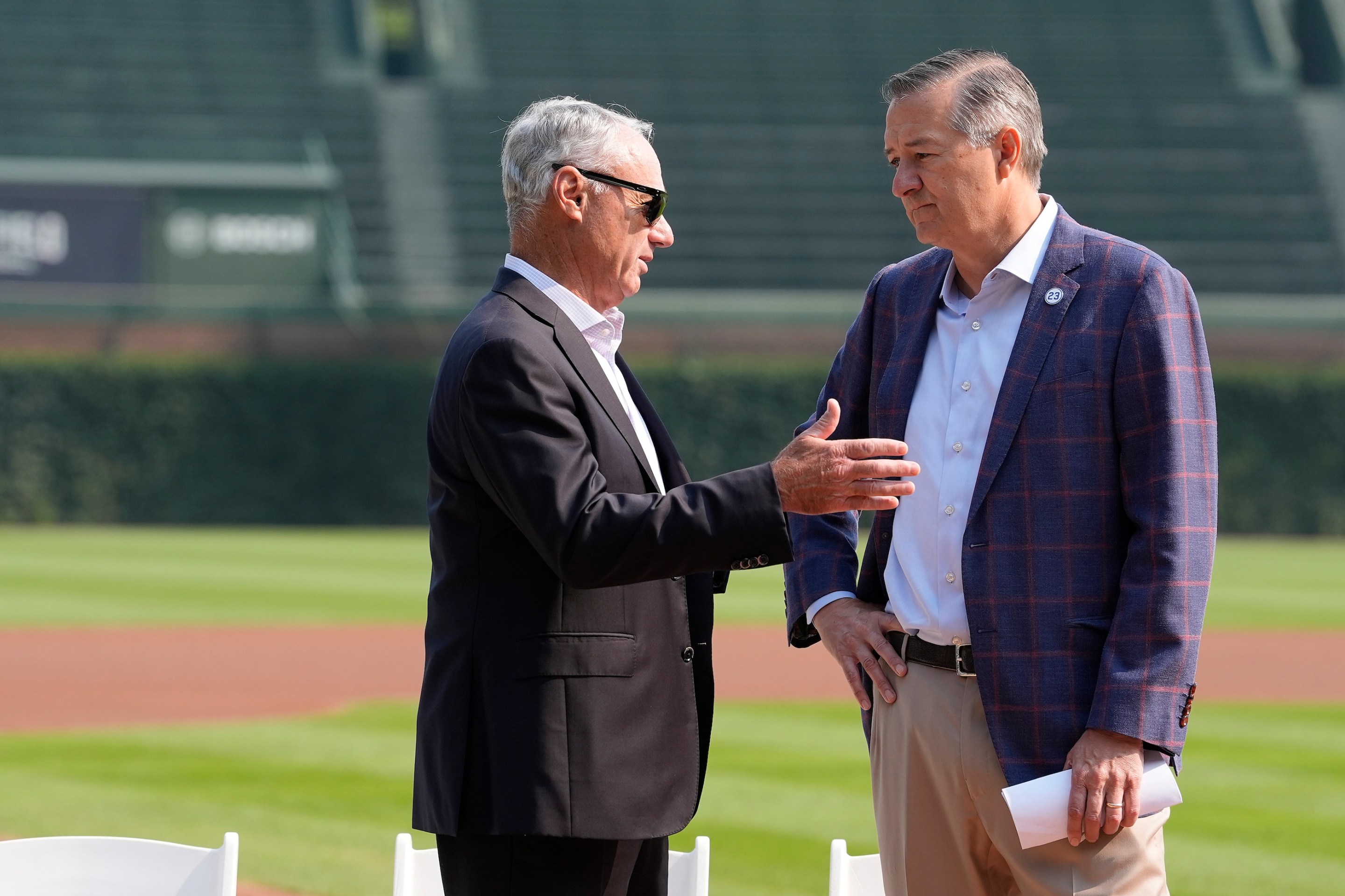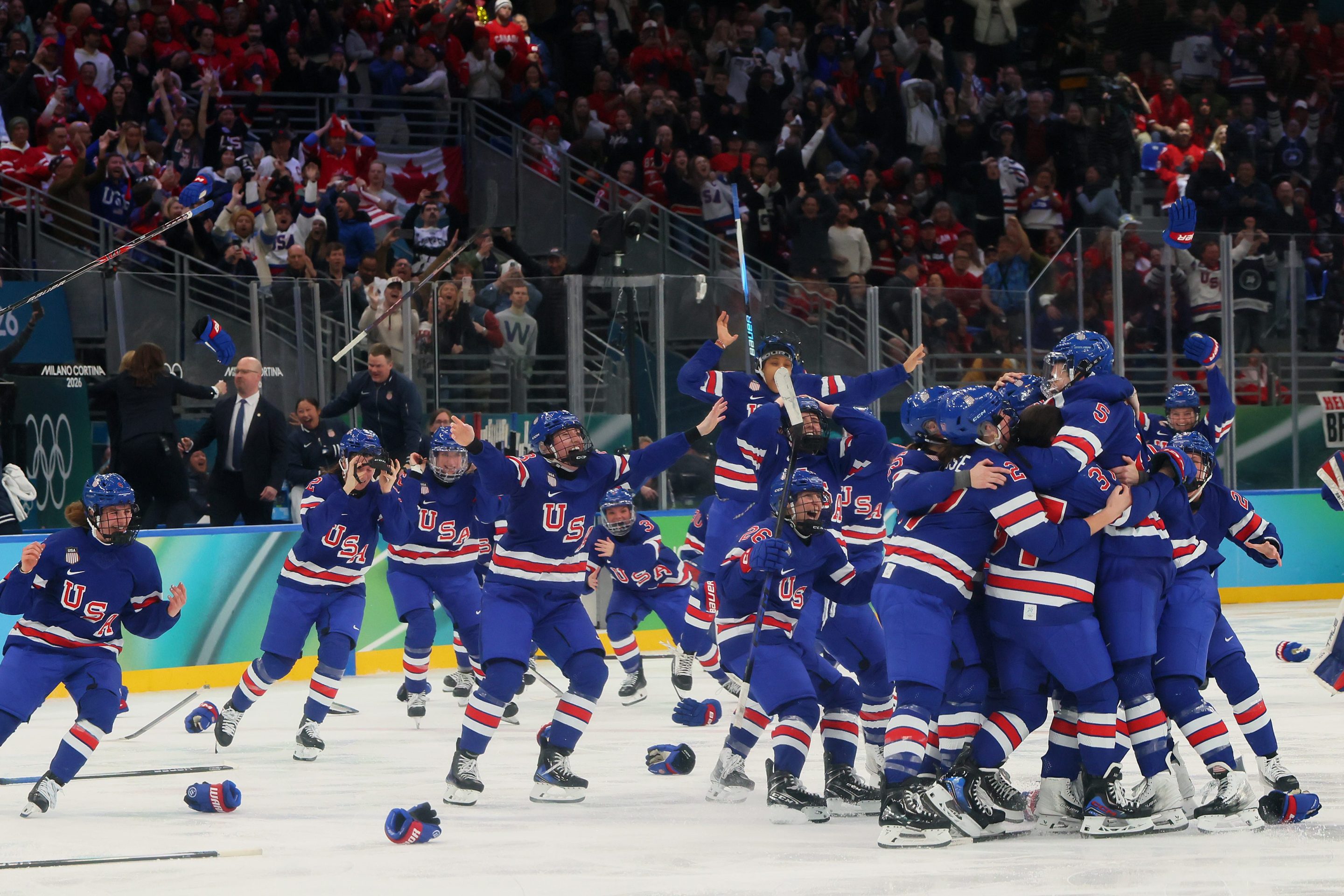Defector has partnered with Baseball Prospectus to bring you a taste of their work. They write good shit that we think you’ll like. If you do like it, we encourage you to check out their site and subscribe.
This story was originally published at Baseball Prospectus on Sept. 24.
MLB’s commissioner, historically, has served two central purposes. These are:
- Do what his bosses, the owners of every team, want them to do.
- Keep said owners from flying too close to the sun.
The league’s first commissioner, Kenesaw Mountain Landis, had unchecked power and authority, and once his tenure was up in 1944—he only left the job because he died in office—the owners set about making sure they never had anyone like that in the role ever again. Even Bud Selig, an owner himself when he took the mantle of commissioner, had to have the votes of his fellows in order to ram through something he felt was important. The commissioner works for the owners, not the other way around, and too much analysis of what the commish is up to forgets that basic fact—there’s a reason that a different commissioner wouldn’t mean a better one.
MLB’s commissioner is not without some authority, however. The commish is also supposed to let the owners know that they’re in danger of being out over their skis when necessary. Say, when the Astros were found to have been stealing signs and relaying signals in 2017, and Rob Manfred made a point of putting out a gag order on any other owners whining about the relatively lax punishment—he knew no good would come of keeping that story alive any longer than it was, or from dissent in regards to whether the punishment fit the crime, and that said punishment coming from the league office itself mattered in terms of perception. The commissioner is paid to recognize those moments, and so long as the owners see the wisdom in this counsel, then everyone ends up happy. Or, at least, still working together despite disagreements.
Since Selig changed the nature of the commissioner’s office and brought the owners around on the idea of having the same kind of unity that the members of the Players Association have, these two purposes have not been in conflict overly much. Sure, there was complaining about the introduction of revenue-sharing post-1994, but Selig even got George Steinbrenner to agree to the model: There just hasn’t been a cause worth a potential fracturing of this unity, so Selig and Manfred have been able to, for decades now, keep things moving along in the direction of trying to destroy whatever power the Players Association has.
Now, though, there are contradictions to resolve—Manfred cannot do what the owners want him to do, because the owners are not in agreement about what it is they should be doing. Based on recent reporting by Jeff Passan at ESPN, it seems as if Manfred is trying to mediate and push the owners towards a consensus that will satisfy the lot, even if it isn’t necessarily the first choice of the seemingly opposing sides. Given how used to that first role they are, compared to the second, it’s been something of an uphill struggle.
In short, some owners want a salary cap. Specifically, the ones mad at the kind of spending that the Dodgers and Mets are doing. This has been known, as some owners have even said as much publicly since the new year, but Passan is actually reporting on the lack of unity here, rather than speculating on it in December of 2024 like I did, as a reaction to the spending the Dodgers and Mets were doing:
Maybe those MLB teams spending in extreme, noticeable ways right now are doing something similar, working within the bounds they can before the rules change and they’ll have to figure something else out besides the brute force of the dollar. If so, it’s probably only going to enrage the anti-spending clubs that much further, but what does that matter? They’re going to act like this no matter what, and their crusade is always to limit spending around the league, not just their own. The teams that want to try might as well do so in spite of them while it’s an option.
This is all a long way of saying that there’s been something of a united status quo among MLB’s owners for decades now, but, as the shift to streaming and packaged local broadcasts and a new commissioner who wasn’t Selig’s right-hand man all come at the same time, things might be changing. Whether it’s for the 2026 negotiations or 2032’s remains to be seen, but the current state doesn’t seem like it’s going to hold for much longer.
That article predated the Tanner Scott contract with the Dodgers—four years, $72 million—that apparently sent this entire cap discussion into overdrive, per Passan, so incensed were a bunch of owners who let Scott hang around as a free agent until January rather than attempting to sign him until the Dodgers finally went, “hey, if no one else will.” If the status quo couldn’t withstand a reliever signing a deal in January after months of little to no interest from the rest of the league, well. I did say it wasn’t going to hold for much longer, but it was apparently even weaker than imagined. That Passan is covering it in great detail nine months later tells you about how upset those owners still are, and how they see it as emblematic of a larger problem, and a reason to have a salary cap—whatever the cost. At minimum, you’re talking about losing the 2027 season, or at least a massive chunk of it.
Not all of the owners want a cap, and even for some of those who do, there are concerns about what it would cost them to get it, however—both in terms of lost games in 2027, as well as a dip in fan interest, as happened after the 1994 strike. Granted, there isn’t going to be as much fatigue from labor battles in the media or the public as there was in 1994—these work stoppages were a whole lot more common in the 80s and 90s than they are in the present, even if Manfred has already said a lockout is a weapon he plans on wielding in 2026. But, as Passan notes, losing a year of baseball would not be great for the short- or long-term health of the sport—Manfred knows this firsthand, and plenty of owners are aware of the issues losing games would cause, as well.
MLB can’t afford to take a huge ratings drop because of a lockout that causes a lost season or the loss of fans. They have a massive slate of broadcast deals to negotiate after 2028, after all, and lower ratings and less interest will cause problems in negotiating what could otherwise be a record deal for the league, spread across roughly a million providers. That’s not just my speculation—though there has been plenty of that this calendar year—but straight from Passan’s reporting, as well:
The collapse of regional sports networks has left Manfred with what could be a blessing in disguise. MLB’s national television contracts expire following the 2028 season. Between now and then, Manfred hopes to whip up support across the game to nationalize local rights, too. Although convincing the Dodgers, Yankees, Red Sox, Cubs and other teams with their own RSNs or strong local television deals to join a potential 30-team package won’t be easy, multiple sources said the league is confident in its ability to consolidate local rights and shop them to streaming services that would pay billions for a guaranteed audience on nearly half the nights of the year.
There is simply too much at stake with the broadcast deadline looming in 2028, and Manfred also wants to get expansion teams—and the massive expansion fees that would be split among the existing 30 owners—in place before his final term as commissioner ends in January of 2029. At $2.1 billion per expansion team, per recent reporting on the potential fees, the other owners would be looking at a hefty $140 million payout simply for allowing two more clubs into the league.

A record media deal that leverages local rights in new, potentially nationally-oriented ways; expansion teams and expansion fees; and some kind of supercharged revenue-sharing model that tries to copy what leagues like the NFL are doing—these are Manfred’s answers to the current bickering of the owners. It’s not that he’s against a cap, but the timing just isn’t right—that might end up being a problem for the next commissioner to solve, while Manfred’s is building a foundation that the existing owners will approve of. Basically, he has to use this time to convince them of what they should want, so that he can then enact it just like they want him to—otherwise, he’ll have to do what they want him to, even if he thinks it goes against their best interests, because he is beholden to them in the end. Manfred’s tenure isn’t going to end like Selig’s, with a relaxing ban of Alex Rodriguez to kick off an extended victory lap. His hands are going to be full trying to keep the owners from making a disastrous mistake, and then paying back their trust in him by delivering the promised changes that caused them to avert from their chosen, capped path in the first place.
That’s good news for fans, in the sense that the salary cap might not be a major topic of conversation by this time next year, assuming that Manfred can actually rebuild some unity here. But any success on that front is also just pushing that discussion to the future, into the hands of another commissioner who will have the same responsibilities to the owners that Manfred does now. And with fewer contradictions to resolve.






